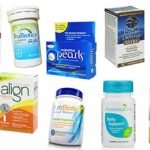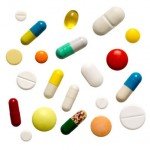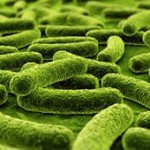What Triggers Irritable Bowel Syndrome (IBS)?
 Irritable Bowel Syndrome affects an estimated 10 to 20 percent of the United States.
Irritable Bowel Syndrome affects an estimated 10 to 20 percent of the United States.
Irritable Bowel Syndrome also goes by many different names such as nervous indigestion, inflammatory bowel disease, spastic colon, mucous colitis, and intestinal neurosis.
Along with its long list of names, it can also cause a laundry list of symptoms and it can differ between each individual.
There are two main types of IBS: Irritable Bowel Syndrome With Diarrhea (IBS-D) and Irritable Bowel Syndrome With Constipation (IBS-C).
Symptoms can include:
- Diarrhea
- Constipation
- Abdominal pain
- Bloating
- Changes in bowel habits
- Excess gas
- Nausea
- Sudden urges to go to the bathroom
Even with IBS being so prevalent among the population, doctors still aren’t sure what exactly causes IBS.
However, they have discovered things that can affect or trigger IBS in individuals.
Let’s take a look at these IBS triggers…
Bacterial Infection
IBS can be triggered in individual’s who’ve recently had a serious stomach or intestinal infection.
These can be infections such as salmonella or campylobacter that are caused by tainted water or food.
Food Allergies or Sensitivity
Common triggers in individuals with IBS are often food related.
These common occurrences make doctors and health professionals wonder if there’s a solid link between IBS and food allergies or sensitivities.
Some of the common foods that cause issues with IBS are:
- Beans, legumes, and peas
- Dairy products
- Cruciferous vegetables (broccoli, cabbage, cauliflower, Brussel sprouts)
- Wheat
- Corn
- Coffee/tea
- Citrus fruits
- Artificial sweeteners
These trigger foods often cause gas, which leads to painful stomach cramps and bloating.
Anxiety and Stress
Individuals experiencing stress or depression have a higher chance of having IBS.
Stress, anxiety, and depression are more likely to worsen symptoms rather than cause them.
The exact link hasn’t been established but there seems to be a strong correlation.
Fructose
Dr. Young Choi performed a study at the University of Iowa Carver College of Medicine and found that a portion of IBS cases may be triggered by fructose ingestion.
Dr. Choi analyzed 183 individuals for two years and saw that with increased fructose ingestion, IBS symptoms worsened.
He also discovered that symptoms ceased when he eliminated fructose from the diets of those individuals.
The American diet is filled with fructose, especially high fructose corn syrup (HFCS).
This may be another potential link explaining the high prevalence of individuals suffering from IBS nowadays.
Other theories exist regarding the cause of IBS. Some of these theories are:
- Too many bad bacteria occupying the small intestine
- Genes and heredity
- Increased amounts of hormones and chemicals in the system (oral concentration or hormone replacement therapy)
- A faulty “connection” between the gut and the brain
- Use or abuse of alcohol or smoking
- Continued lack of sleep and exercise
A Final Note…
If you’re concerned that you may have IBS, please talk to your healthcare provider.
IBS is very common but there’s still no cure.
Supplementing with probiotics, particularly Lactobacillus acidophilus, has been shown to help individuals suffering from IBS.
To find a probiotic that works best for you, check out our 10 best probiotic supplements.








